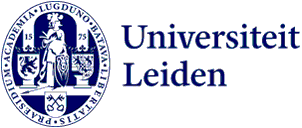
Joop Schaye appointed as KNAW member: ‘A great honour’
Joop Schaye, Professor of The formation of galaxies, has been elected as a member of the Royal Netherlands Academy of Arts and Sciences (KNAW). He will be officially inaugurated on 29 September.

‘No one was there to witness the birth of the universe. But thanks to Joop Schaye’s work, we’re getting closer to understanding how it might have happened.’
That’s how the KNAW describes Schaye’s contribution. ‘Using theory, computer models and observations, he investigates how structure in the universe has developed from the Big Bang to the present day. Under his leadership, the largest visualisation of our cosmos to date was created. His models help scientists interpret the results of space missions and telescopes, and his group uses advanced computer simulations to study how galaxies and black holes grow and evolve.’
About KNAW membership
Being elected to the KNAW is a recognition of a scientist’s career. The Academy has around 600 members, chosen based on their scientific achievements. Membership is for life.
Schaye says he considers the appointment ‘a great honour’. ‘I see it as a big compliment for many years of dedicated research by myself, and just as much by the current and former members of my group.’
An unexpected call from the president
The professor received the news in mid-April, in a phone call from KNAW president Marileen Dogterom. It was not something he had anticipated. ‘It was definitely a surprise. The quality of science in the Netherlands is exceptionally high. There are far more outstanding researchers in the country than the number of new members the KNAW can admit each year.’
As a member, Schaye will attend meetings with fellow Academy members and take part in discussions on science, policy, and societal issues. Members also serve on committees, advisory boards and juries that award various scientific prizes.
Standing up for fundamental research
Schaye is curious to see what the role will bring. One thing is clear: he wants to advocate for the importance of fundamental research. ‘That’s under pressure, and I’d like to help defend it. I’m also looking forward to learning more about the KNAW’s current work and finding out where I can contribute.’
